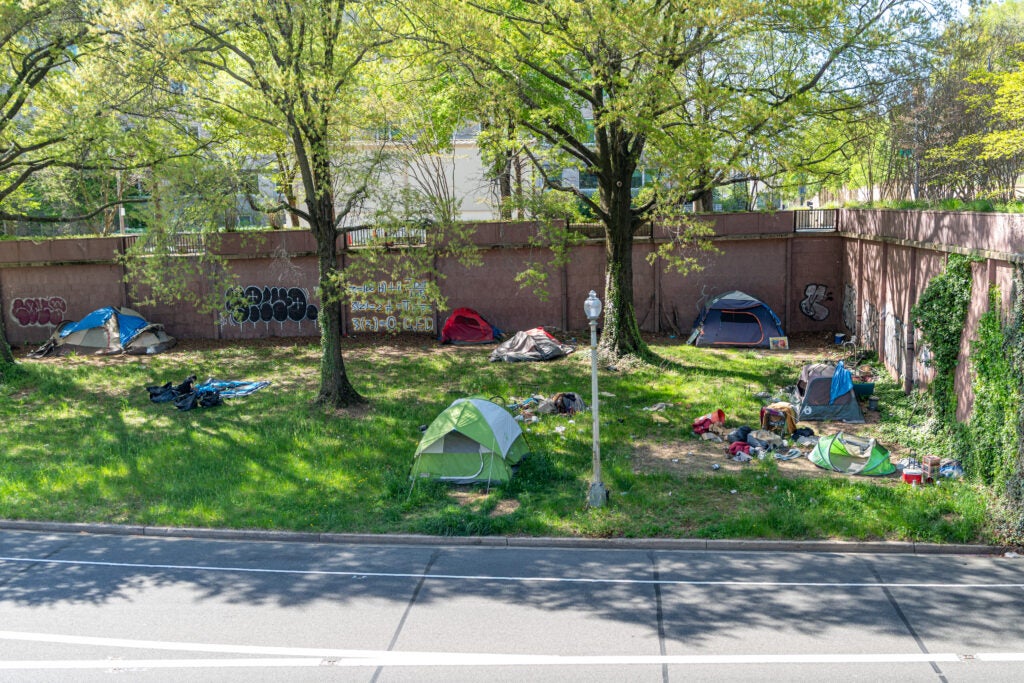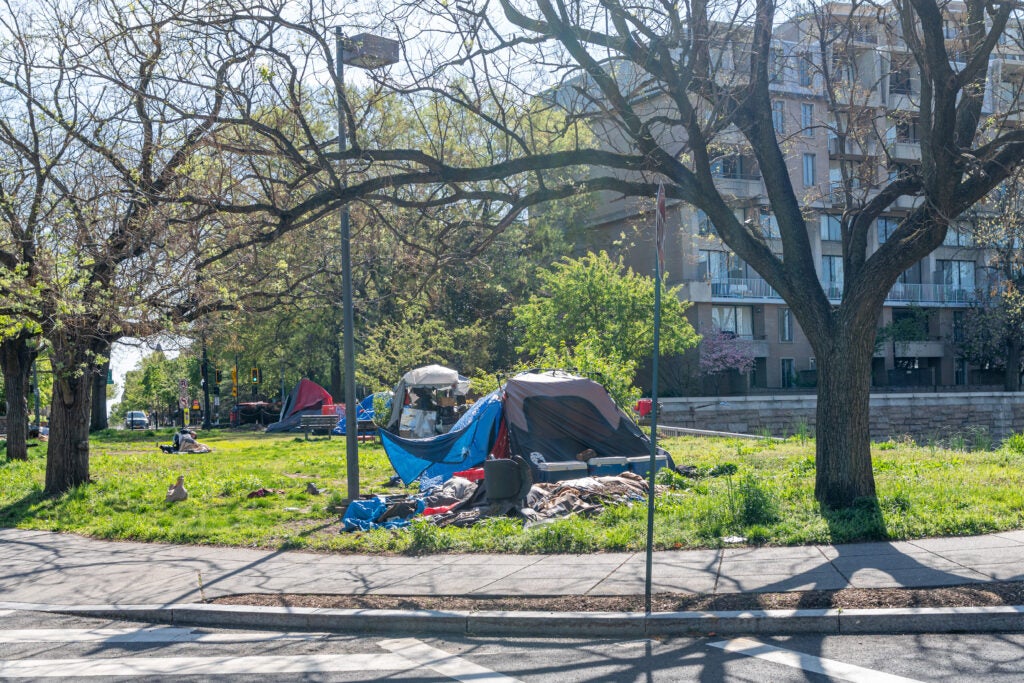DC Resident to Mayor: Since Homeless Encampments Are Permitted, Can Tourists Camp Too?
Virginia Allen /
If Washington, D.C., isn’t going to clean up homeless encampments, it should embrace equal opportunity for all and allow tourists to pitch a tent and save on hotel costs, one city resident says.
“If … it is your policy to continue to allow individuals and groups to sleep, cook, and live on city-controlled grassy areas, then you should announce this opportunity to both American and foreign visitors so that they can enjoy the experience and savings as well,” S.R. Hankinson writes in an open letter to D.C. Mayor Muriel Bowser, a Democrat.
In the letter, dated April 23 and shared on social media Wednesday, Hankinson explains that he moved last year to the District of Columbia after visiting the city for many years. But, he adds, “until the past few years, I do not recall seeing informal camping sites outside the Kennedy Center, in Georgetown, and outside the State Department on Virginia Avenue.”
“City-provided trash cans, not intended for residential waste, are not able to absorb the domestic trash of all the camp inhabitants—even should they choose to use them, as many evidently do not,” Hankinson writes to Bowser. “Rats are as common as squirrels in the camp areas.”


S.R. Hankinson is Simon Hankinson, a senior research fellow at The Heritage Foundation, which founded The Daily Signal in 2014.
Homelessness rose last year in the District. A total of 4,922 homeless persons were living in the city in May 2023, The DCist reported, a 11.6% increase from 2022.
The city’s informal campgrounds for the homeless can be possible, Hankinson says, only if one of two things are true.
The first: “There is no legal impediment to any citizen setting up a tent or sleeping rough at will on public green space in the District of Columbia.”
The second: “Setting up tents on public green space is illegal, but neither city nor federal authorities choose to enforce the law.”
According to D.C. Health and Human Services, the city “is focused on making homelessness rare, brief, and non-recurring.”
The city has a “comprehensive plan to address homelessness,” the agency’s webpage reads, and it includes expanded rental subsidies and short-term housing options for families. While the city works to reduce homelessness, the agency adds, officials “established a protocol for addressing encampments.”
The city’s HHS office says a “protocol for cleaning public spaces is triggered when a site presents a security, health, or safety risk, and/or interferes with community use of such places.”
The Daily Signal didn’t receive a response from Bowser’s office after asking whether the mayor will permit tourists to sleep in tents under the current encampment policy or plans to clean up the homeless encampments Hankinson cites in his letter, specifically outside the Kennedy Center on F Street NW in Georgetown and outside State Department headquarters on Virginia Avenue NW.
Hankinson sent the letter to Bowser on Tuesday, one day after the Supreme Court heard oral argument in a case that may determine, at least for one Oregon jurisdiction, whether a city may ban homeless persons from sleeping on the streets.
The court’s conservative and liberal justices appeared largely split on the issue Monday, with Chief Justice John Roberts, a conservative, questioning why the high court should be the one to determine how Grants Pass, Oregon, may address its homeless population. Justice Elena Kagan, a liberal, questioned a city’s right to “criminalize the status of homelessness.”
The nine Supreme Court justices are expected to rule in June or July, possibly setting a significant precedent for how cities may legislate on the issue of homelessness.
